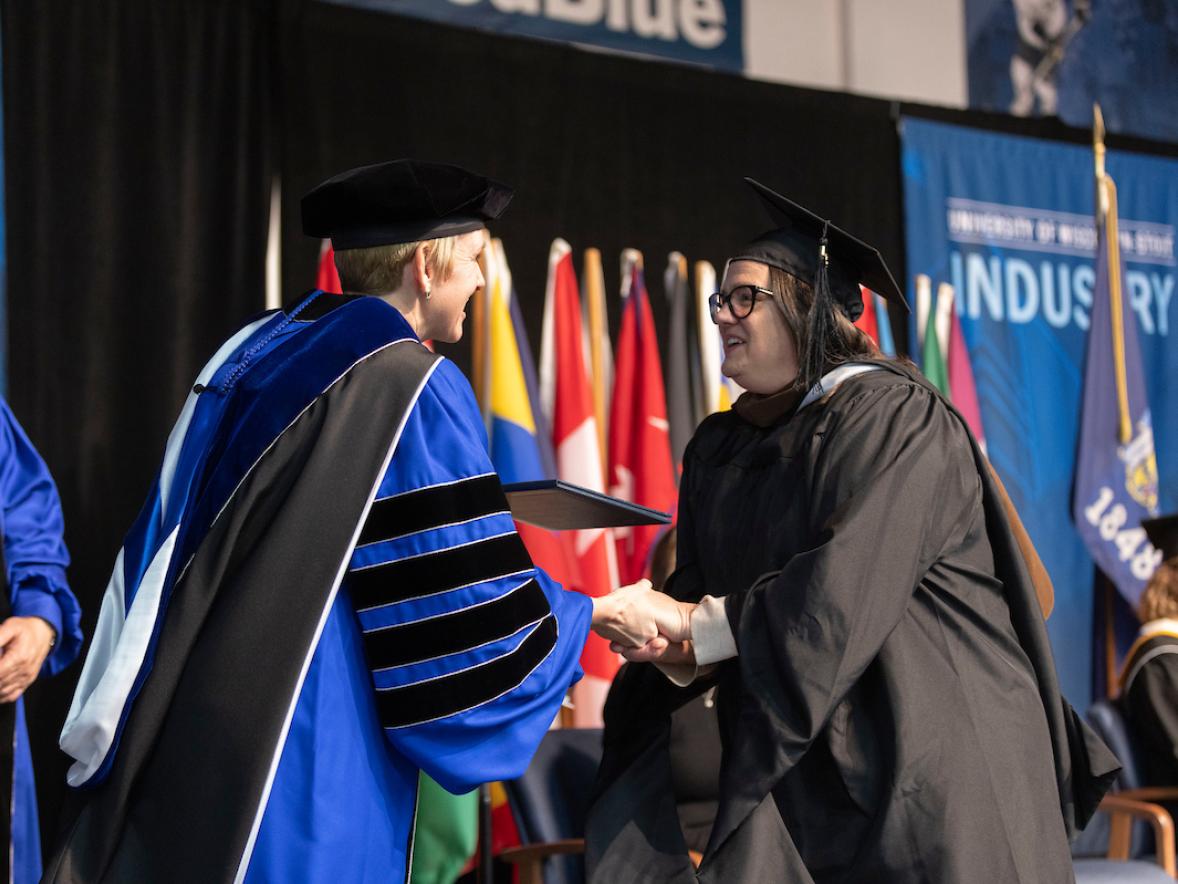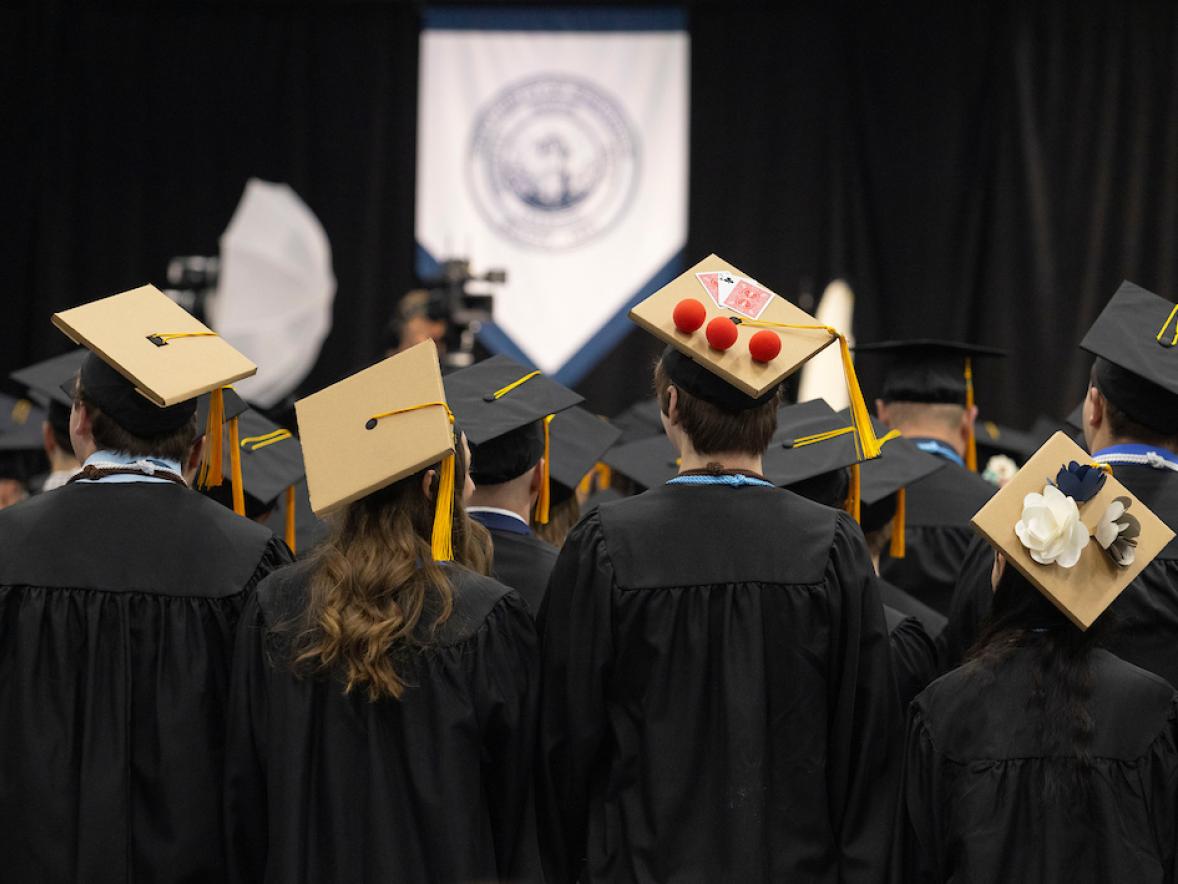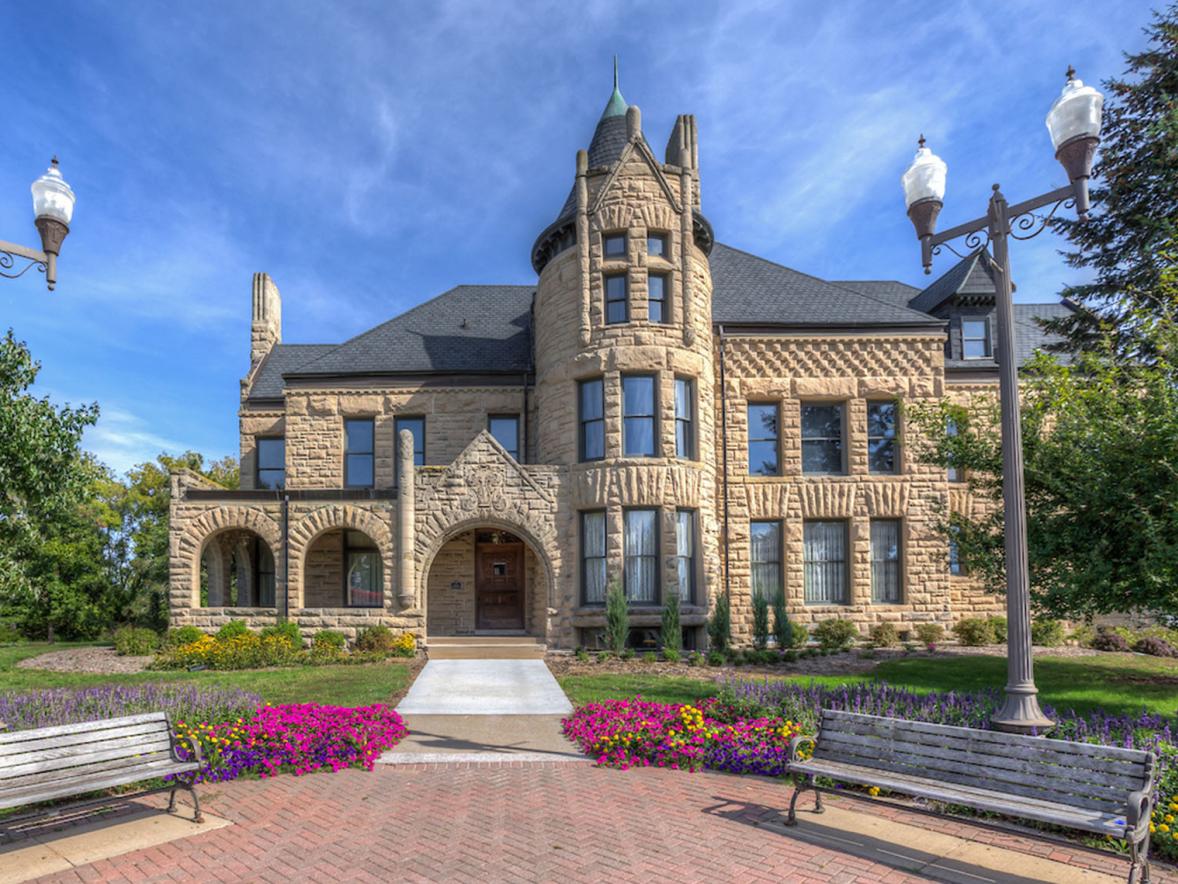The applied social science program at UW-Stout has myriad opportunities for students to chart their own career course, with three concentrations, eight related minors and three special interest areas.
It didn’t take Ben Stoflet long to sort through the options. As a veteran of the United States Marine Corps, he discovered a passion for helping fellow veterans, deciding that law school was the best path for him to accomplish this. When he enrolled at UW-Stout, the direction he wanted to take was clear — the prelaw path within the applied social science bachelor’s program.
Now, after earning his degree in 2020 from UW-Stout, he’s a second-year student at Mitchell Hamline School of Law in St. Paul and is excited about the direction his post-military career is headed.
“I was very well prepared to enter law school,” said Stoflet, a native of Eau Claire. “I felt like I received a high-quality education from UW-Stout professors who truly cared about my success.”
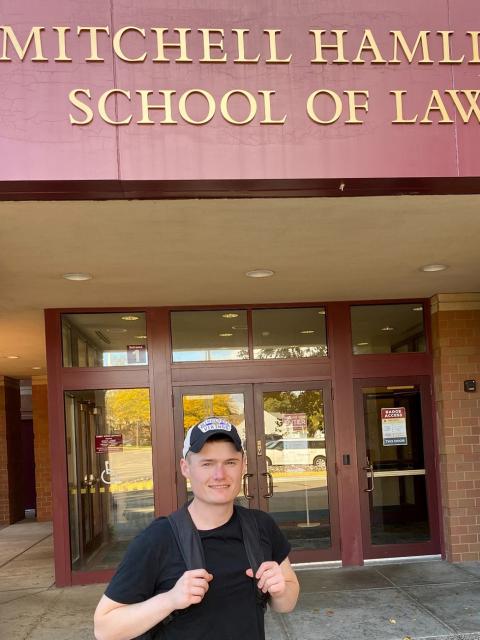
Stoflet and another recent graduate, second-year law student Dillon Quest at City University of New York School of Law, are perfect examples of how the program is designed to work, said Professor Tina Lee, the program director.
“The program builds on your strengths, goals and interests while creating a customized experience to prepare you for a rewarding career in whatever field you choose,” Lee said.
Stoflet achieved the rank of sergeant while serving in the Marine Corps from 2012-16. He received a Combat Action Ribbon in 2013 while deployed to the Helmand Province in Afghanistan.
As part of the prelaw path at UW-Stout, Stoflet concentrated on history and political science while taking courses such as Philosophy, Modern U.S. History and Applied Social Analysis. Throughout his undergraduate journey he felt like he was being challenged to think.
“Professors at UW-Stout often employed the Socratic Method of instruction, facilitating debate, critical thinking and self-reflection within students. The Socratic Method of instruction has benefited me most in law school, as it is the primary method of instruction,” Stoflet said.
“My philosophy professor, Padraig Gallagher, was excellent at ensuring deeper learning occurred in the classroom. Through conversation, inquiry and requiring students to be cognizant of (and practice) the Principle of Charity, Professor Gallagher allowed debate to flourish in class,” he added.
The transition to law school, as a result, has been seamless for Stoflet. Graduates from the prelaw path within the program have a record of 100% admission into law school.
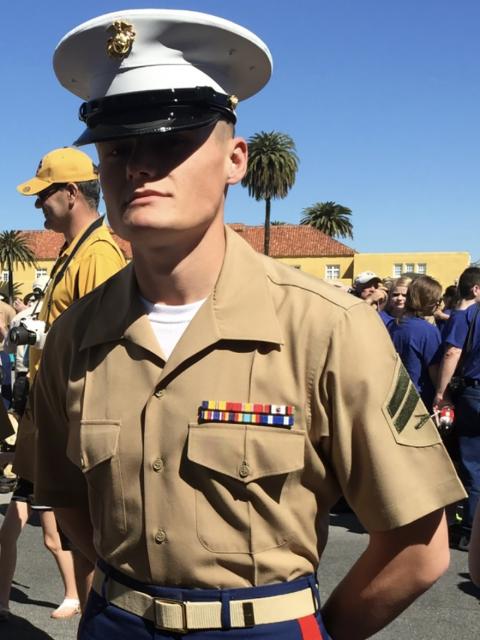
“I love the lively debates we have in (law) classes. Each student is well-prepared, excited and immersed in every case we discuss,” Stoflet said of his courses at Mitchell Hamline School of Law.
Stoflet emphasized that being a member of the Boy Scouts, where he achieved the rank of Eagle Scout, had an immense impact on him growing up. Through scouting, he was instilled with the core values of service to others and a belief in the Scout motto to always be prepared.
He chose Mitchell Hamline School of Law for several reasons: he could stay close to friends and family, attend a school with a strong reputation in health care law and the school is close to a regional Veterans Administration hospital.
After leaving the service, he knew that UW-Stout was the place for him, where he found faculty members willing to go above and beyond to help him succeed. Professor Lee, for example “helped me more than anyone during my time at Stout, personally and academically. There really wasn’t a question she didn’t have an answer for.”
Also, he said UW-Stout came highly recommended.
“My father, close friends and family members all graduated from UW-Stout, which made me aware of the quality education and reputation of the school,” Stoflet said.
The applied social science program has three concentrations: economics; history and politics; and sociology and anthropology. Along the with prelaw pathway, focus areas include social work, which includes working toward a social work certificate; and global studies.
###





